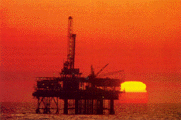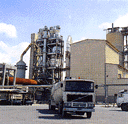
|
|
Houses, cars and shopping malls are all symbol of the wealth generated by the discovery of the oil, but...
Back in the 1950's when oil first began to make a serious impact on the lives of the people of Kuwait, Saudi Arabia and Bahrain, the sudden rise in living standards, the massive building programmes, the development of economic infrastructures and social services set off what is still considered as the largest turnaround in economic growth for any region.
Today, that situation is no longer as enviable as it once was. Most of the nations of the GCC have to contend with budget deficits, as opposed to the budget surpluses of the 70's. The GCC as a political or economic body, has yet to reach the level of integration that it was first set up to achieve. Moreover, there is still political tension in the region arising out of the Iran-Iraq war and the Gulf War, both of which have set back the region for years in terms of potential development and growth.
For the nations of the Arabian Gulf, this shift means there is a second opportunity to make a mark in the global economy. According to Sir William Purves, chairman of the HSBC Group, the ties that the nations of this region have developed with both the East and the West can be used to make this region a significant part of this new equation.
As a matter of fact, it has been estimated that some US $40 billion per year is being invested by the people of this region in other parts of the world. Put in context, a larger part of this figure should logically have found its way into the development of their nations. But today, industrial development in most countries of the region, with the exception of Saudi Arabia, lags far behind those of other regions. For that matter, what industrial development there is on a serious level in the UAE, Qatar, Bahrain and Oman is done so on a governmental level. Private investment in industrial growth has, in general, been minimal. There are reasons for this imbalance, as several businessmen have pointed out. For one, the small population base of the nations themselves. According to a well informed source, managing one of the larger industrial concerns in the UAE, "Having a small population means that many economic activities are not viable if only the domestic market of the UAE is taken into account. (Also) The financial rewards in real estate, finance and trade are between two and three times higher than in manufacturing." The development of an industrial base, fuelled by private investment is expected to become of crucial importance as the region attempts to reduce its dependence on oil. And indeed, with oil being a finite resource, the fact that some of the nations in the region derive as much as 70 to 80% of their incomes from oil becomes a source of worry. Some have already stepped up the pace of diversification, or at least have plans for it. The Economic Department of the Government of Dubai for instance, has just released its Strategic Development Plan, which aims to make Dubai's GDP 100% non-oil soured by the year 2010. Saudi Arabia's push to develop its industrial base has already borne fruit with industrial growth in the country becoming a sizeable part of the economy. Similarly, Oman too has made industrial development one of the key features of its future economy. One of the most significant challenges facing the region is that of providing employment for the young. There are a great many localisation programmes in place throughout the Gulf states as regional governments strive to train the new generation to enter the work force. It is not enough to have a whole generation of university-educated engineers and doctors or people with business administration degrees, as there are limits to the number of doctors, engineers or administrators that a country needs - particularly the Gulf states, who have very small populations. What is really needed, is more emphasis placed on more basic skills so we can also turn out carpenters, plumbers and mechanics. This is the message that has to be put across to the boys and girls who are now at school. It will require a concerted effort on the part of educationalists, parents and the government to explain what the needs of the country are, but it must be done subtly and diplomatically. It is no good forcing a change of attitude on them. After all they are the future, and we do not what to alienate them by insulting them. This is their country after all. Perhaps finally, when it comes to considering whether the region is rich enough, it is the people who will be so critical to success. As Dr. Noordin Sopiee, director general of the Institute of Strategic Studies in Malaysia, said at the 1996 Annual Summit of the Emirates International Forum, "Having a large disposable income does not necessarily mean that you will be happy. Certainly, it is easier to be rich and happy than be poor and happy, but wealth in itself- is not a sure indicator of happiness. |
Khalaf Al Habtoor
|


 True, this is indeed a region blessed with the rarest of good fortunes. The discovery of petroleum has allowed the kind of development and growth for the people of the Gulf, that would not have been possible otherwise. However, when considered in the overall global context of economic relationships, one fact that becomes clear is that although the people of this region are well-off, the Gulf nations are not as rich as everyone assumes.
True, this is indeed a region blessed with the rarest of good fortunes. The discovery of petroleum has allowed the kind of development and growth for the people of the Gulf, that would not have been possible otherwise. However, when considered in the overall global context of economic relationships, one fact that becomes clear is that although the people of this region are well-off, the Gulf nations are not as rich as everyone assumes. In the 1970's, the United Arab Emirates joined the boom. But it was the OPEC crisis that really proved the economic power of petroleum resources in the modern world. The raising of oil prices to over US$40 per barrel resulted in a windfall for the Arab Gulf countries. In fact, such was the level of revenue that some ministries in the UAE could only spend around 40% of their budgets every year.
In the 1970's, the United Arab Emirates joined the boom. But it was the OPEC crisis that really proved the economic power of petroleum resources in the modern world. The raising of oil prices to over US$40 per barrel resulted in a windfall for the Arab Gulf countries. In fact, such was the level of revenue that some ministries in the UAE could only spend around 40% of their budgets every year. The GDPs of the nations of the Gulf have always been largely based on their petroleum resources. I t is however, the changing international economic map, combined with the obvious changes in the regional scene, that are considered the primary causes of change here. The present shifting of international trade from the nations of the OECD to those of East Asia means an effective realignment of the world's free trade equation that has existed for more than fifty years.
The GDPs of the nations of the Gulf have always been largely based on their petroleum resources. I t is however, the changing international economic map, combined with the obvious changes in the regional scene, that are considered the primary causes of change here. The present shifting of international trade from the nations of the OECD to those of East Asia means an effective realignment of the world's free trade equation that has existed for more than fifty years. One of the economic curiosities of the oil states is that, while the individuals of nations such as the United Arab Emirates and Qatar enjoy one of the highest per capita incomes in the world (listed at US$19,860 and 17,096 respectively), the nations themselves and are minnows in the global economy. One of the reasons for this is the fact that both have small populations, another is the fact that a great deal of private capital is invested abroad.
One of the economic curiosities of the oil states is that, while the individuals of nations such as the United Arab Emirates and Qatar enjoy one of the highest per capita incomes in the world (listed at US$19,860 and 17,096 respectively), the nations themselves and are minnows in the global economy. One of the reasons for this is the fact that both have small populations, another is the fact that a great deal of private capital is invested abroad.